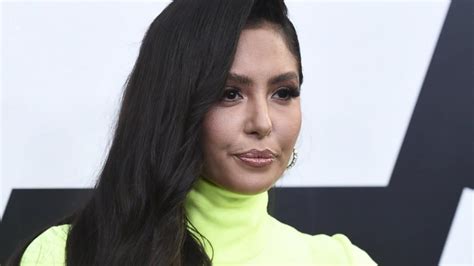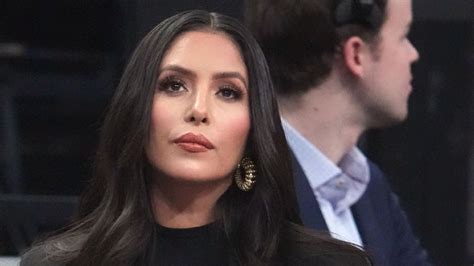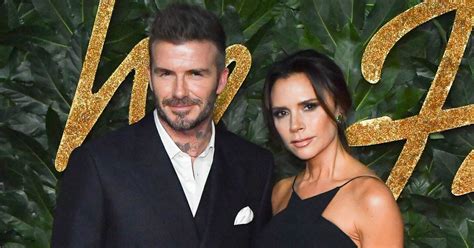
Vanessa Bryant is standing firm on her right to express her political views, stating she will not apologize for where she stands politically, despite online backlash. Bryant recently took to social media to voice her support for certain political candidates, sparking both support and criticism.
Vanessa Bryant has ignited a fervent debate after publicly expressing her political views, declaring unequivocally that she will not apologize for her stance. The widow of NBA legend Kobe Bryant and a prominent figure in her own right, Bryant faced immediate and intense reactions on social media following her endorsements of specific political candidates. Her firm stance against issuing any apologies underscores a growing trend of public figures using their platforms to engage in political discourse, often navigating a complex landscape of support and opposition.
The controversy began when Bryant shared her political preferences online, leading to a barrage of comments ranging from staunch support to harsh criticism. Many questioned the appropriateness of her involvement in politics, while others defended her right to express her opinions freely. Amid the storm, Bryant remained steadfast, asserting her right to engage in political conversations without seeking validation or approval from others.
“I will never apologize for who I am and where I stand,” Bryant stated, encapsulating her unwavering resolve. Her declaration highlights the challenges faced by public figures who choose to engage in political discourse. While some are lauded for using their influence to promote civic engagement, others face significant backlash for potentially alienating segments of their audience.
Bryant’s decision to stand her ground reflects a broader societal shift where individuals are increasingly vocal about their political beliefs. In an era defined by social media and constant connectivity, public figures are often expected to take a stance on important issues, creating a dynamic where silence can be interpreted as indifference.
The reaction to Bryant’s political statements underscores the deep divisions that exist within society. Her supporters praised her for using her platform to advocate for causes she believes in, while critics accused her of being insensitive or out of touch. This dichotomy highlights the complexities of navigating political discourse in the public eye.
Her firm stance has resonated with many who believe in the importance of free speech and the right to express political opinions without fear of retribution. However, it has also drawn criticism from those who feel that her political views are misinformed or harmful. The debate surrounding Bryant’s actions underscores the challenges of engaging in political conversations in an increasingly polarized society.
The intensity of the reaction to Bryant’s political statements is a reflection of the heightened political tensions that characterize contemporary society. In an era defined by partisan divisions and ideological clashes, even seemingly innocuous expressions of political opinion can trigger intense debates and emotional responses. Bryant’s experience serves as a reminder of the complexities and challenges of navigating the political landscape in the public eye.
Vanessa Bryant’s declaration that she will not apologize for her political views is a testament to her commitment to standing up for what she believes in. Whether one agrees with her political opinions or not, her unwavering resolve is a reminder of the importance of free speech and the right to express oneself without fear of censorship or retribution. As the debate surrounding her actions continues to unfold, it is clear that Bryant’s decision to engage in political discourse has sparked an important conversation about the role of public figures in shaping public opinion and promoting civic engagement.
Background and Context
Vanessa Bryant has long been recognized as a prominent figure, not only as the widow of Kobe Bryant, but also as a businesswoman, philanthropist, and advocate for various causes. Following the tragic death of Kobe and their daughter Gianna in January 2020, Vanessa assumed a more public role, managing her late husband’s estate and continuing his legacy through philanthropic efforts.
Her involvement in politics, however, has been more subtle until recently. While she has supported various charitable organizations and causes, her overt political endorsements mark a significant shift. This move places her among a growing number of celebrities and public figures who are increasingly willing to leverage their platforms to advocate for specific political outcomes.
The decision to publicly express her political views comes at a time of heightened political polarization in the United States. The political climate is marked by deep divisions over issues such as healthcare, immigration, climate change, and social justice. In this context, any public statement by a well-known figure is likely to be met with strong reactions from both sides of the political spectrum.
Bryant’s stance reflects a broader trend of individuals becoming more politically engaged and vocal about their beliefs. Social media platforms have provided a powerful tool for people to express their opinions, organize movements, and hold public figures accountable. However, this increased connectivity has also led to greater polarization, with individuals often retreating into echo chambers where their views are reinforced and dissenting opinions are dismissed.
The intersection of celebrity culture and politics has become increasingly prominent in recent years. Celebrities often use their platforms to endorse political candidates, advocate for specific policies, and raise awareness about important social issues. While some view this as a positive development, arguing that celebrities can help to amplify marginalized voices and mobilize support for important causes, others are more critical, suggesting that celebrity endorsements can be superficial and can distract from more substantive political debates.
Vanessa Bryant’s decision to speak out about her political views underscores the complexities of navigating the political landscape in the public eye. As a prominent figure with a large following, her words carry significant weight and are likely to be scrutinized by a wide range of audiences. By standing firm on her right to express her political opinions, Bryant is asserting her autonomy and challenging the notion that public figures should remain neutral on important social and political issues.
Public Reaction and Social Media Response
The public reaction to Vanessa Bryant’s political statements has been swift and varied, largely playing out across social media platforms. Supporters have lauded her courage in expressing her views and standing up for what she believes in, while critics have accused her of being insensitive, misinformed, or simply out of touch with the realities faced by ordinary Americans.
On platforms like Twitter and Instagram, hashtags such as #VanessaBryant and #PoliticalViews have become trending topics, with users sharing their thoughts and opinions on her statements. Some have praised her for using her platform to advocate for causes she believes in, while others have accused her of alienating fans who may hold different political views.
The comments sections of her social media posts have become battlegrounds for political debate, with users engaging in heated arguments over the merits of her endorsements and the broader implications of her political involvement. Some have called for boycotts of products and brands associated with Bryant, while others have defended her right to express her opinions without fear of retribution.
The intensity of the social media response reflects the highly polarized nature of contemporary political discourse. In an era of echo chambers and filter bubbles, individuals are often exposed only to information and perspectives that reinforce their existing beliefs, leading to greater division and animosity.
The speed and scale of social media have also amplified the impact of Bryant’s statements. In the past, political endorsements by celebrities might have been limited to traditional media outlets such as newspapers and television. Today, however, social media allows celebrities to communicate directly with their followers, bypassing traditional gatekeepers and potentially reaching a much wider audience.
The use of social media to express political views also carries certain risks. Public figures who engage in political discourse on social media are often subjected to intense scrutiny and criticism, and their words can be easily taken out of context or used against them. They may also face pressure to conform to certain political orthodoxies or to apologize for statements that are deemed offensive or insensitive.
Despite the risks, many celebrities and public figures continue to use social media as a platform for political expression. They argue that it is their responsibility to use their influence to advocate for causes they believe in and to speak out against injustice and inequality. They also believe that it is important to engage in political conversations, even if those conversations are difficult or uncomfortable.
Vanessa Bryant’s experience highlights the challenges and opportunities of navigating the political landscape in the age of social media. By standing firm on her right to express her political views, she is asserting her autonomy and challenging the notion that public figures should remain silent on important social and political issues. Her actions are sure to continue to generate debate and discussion in the days and weeks ahead.
Implications for Public Figures and Political Discourse
Vanessa Bryant’s steadfast refusal to apologize for her political views carries significant implications for public figures and the broader landscape of political discourse. Her stance challenges the conventional wisdom that celebrities and other prominent individuals should avoid taking sides on controversial issues, lest they alienate segments of their audience.
By openly expressing her political opinions, Bryant is signaling that she is willing to risk potential backlash in order to stand up for what she believes in. This decision could embolden other public figures to speak out on political issues, even if they fear negative consequences.
However, Bryant’s experience also underscores the potential pitfalls of engaging in political discourse in the public eye. The intense social media reaction to her statements demonstrates the level of scrutiny that public figures face when they venture into the political arena. Her words have been dissected, analyzed, and criticized by a wide range of audiences, and she has been subjected to personal attacks and calls for boycotts.
The case also highlights the complexities of navigating the political landscape in an era of heightened polarization. In a society deeply divided along partisan lines, even seemingly innocuous expressions of political opinion can trigger intense debates and emotional responses. Public figures who choose to engage in political discourse must be prepared to face criticism and opposition, and they must be willing to defend their views in the face of scrutiny.
The incident raises broader questions about the role of public figures in shaping public opinion. Some argue that celebrities and other prominent individuals have a responsibility to use their platforms to advocate for positive social change. They believe that public figures can help to raise awareness about important issues, mobilize support for worthy causes, and inspire others to get involved in their communities.
Others are more skeptical of the role of public figures in politics. They argue that celebrities often lack the expertise and knowledge necessary to make informed political judgments, and that their endorsements can be superficial and can distract from more substantive political debates. They also worry that celebrity endorsements can be used to manipulate public opinion or to advance narrow political agendas.
Ultimately, the decision of whether or not to engage in political discourse is a personal one. Public figures must weigh the potential benefits of speaking out against the potential risks of alienating audiences and facing criticism. They must also consider their own values and beliefs, and they must be willing to stand up for what they believe in, even if it is unpopular.
Vanessa Bryant’s actions serve as a reminder that political discourse is an essential part of a healthy democracy. By engaging in political conversations, even when those conversations are difficult or uncomfortable, we can promote greater understanding, challenge entrenched beliefs, and work towards a more just and equitable society.
Detailed Analysis of Bryant’s Statement and its Impact
Vanessa Bryant’s unequivocal declaration that she will “never apologize” for her political views represents a significant moment in the ongoing intersection of celebrity influence and political engagement. The statement is not merely a personal expression of autonomy but a deliberate act of defiance against the often-constraining expectations placed upon public figures.
Her words resonate with a segment of the population that values authenticity and directness, particularly in an era where political messaging is often carefully crafted and filtered. By refusing to back down in the face of criticism, Bryant is signaling a willingness to prioritize her convictions over maintaining universal popularity. This approach carries both risks and potential rewards.
The primary risk is, of course, the alienation of fans and followers who hold differing political views. In a highly polarized environment, individuals often seek validation from those who share their beliefs and are quick to condemn those who deviate. For a public figure like Bryant, whose brand is built on a broad base of support, this could translate to a loss of followers, endorsements, and other opportunities.
However, there is also a potential reward in attracting a more deeply engaged and loyal following. By taking a stand on political issues, Bryant is signaling her values and priorities, which can resonate with individuals who share those values. This could lead to a more meaningful connection with her audience, as well as opportunities to collaborate with like-minded organizations and individuals.
The impact of Bryant’s statement extends beyond her immediate circle of fans and followers. It also contributes to a broader conversation about the role of public figures in political discourse. For decades, celebrities and other prominent individuals have been advised to remain neutral on controversial issues, for fear of alienating segments of their audience. However, this approach is increasingly being challenged, as more and more public figures are using their platforms to advocate for specific political outcomes.
The shift reflects a growing recognition that silence can be interpreted as indifference, and that public figures have a responsibility to use their influence to promote positive social change. By speaking out on political issues, celebrities can raise awareness about important issues, mobilize support for worthy causes, and inspire others to get involved in their communities.
Of course, there are also potential downsides to this trend. Celebrity endorsements can be superficial and can distract from more substantive political debates. They can also be used to manipulate public opinion or to advance narrow political agendas. It is important for consumers to be critical of celebrity endorsements and to make their own informed decisions about political issues.
Despite these potential downsides, the increasing willingness of public figures to engage in political discourse is a positive development. It reflects a growing recognition that politics is not just the domain of elected officials and political experts. It is a shared responsibility, and everyone has a role to play in shaping the future of our society.
Vanessa Bryant’s decision to stand firm on her political views is a testament to her commitment to this principle. By speaking out, she is challenging the status quo and inspiring others to do the same. Whether one agrees with her political opinions or not, her actions are sure to continue to generate debate and discussion in the days and weeks ahead.
Examining Potential Motivations Behind Bryant’s Stance
Understanding the motivations behind Vanessa Bryant’s firm stance requires considering several interconnected factors, including her personal values, her evolving role as a public figure, and the socio-political context in which she operates. While it’s impossible to know her exact reasoning without direct insight, we can infer potential motivations based on her actions and the available information.
Firstly, her personal values likely play a significant role. Having navigated profound personal tragedy and loss, Bryant’s perspective on life and her commitment to certain principles may have deepened. She may feel a strong sense of responsibility to advocate for causes and candidates that align with her beliefs, viewing it as a way to honor the legacy of her late husband and daughter.
Secondly, Bryant’s role as a public figure has evolved significantly since the tragic death of Kobe Bryant. She has taken on a more prominent role in managing his estate, overseeing his business ventures, and continuing his philanthropic efforts. This increased visibility has likely empowered her to use her platform to speak out on issues that she cares about, recognizing the potential impact of her voice.
Thirdly, the current socio-political context cannot be ignored. The United States is deeply divided along partisan lines, with heated debates over issues such as healthcare, immigration, and social justice. In this environment, many individuals feel compelled to take a stand and express their views, even if it means risking controversy. Bryant may have felt a similar sense of urgency to speak out, believing that her voice could make a difference.
Furthermore, the influence of social media should not be underestimated. Platforms like Twitter and Instagram have provided public figures with a direct line of communication to their followers, bypassing traditional media gatekeepers. This allows them to express their views unfiltered and to engage directly with their audience, which can be both empowering and challenging.
It’s also possible that Bryant’s stance is partly motivated by a desire to challenge the traditional expectations placed upon public figures. For years, celebrities have been advised to remain neutral on controversial issues, for fear of alienating segments of their audience. Bryant may be rejecting this notion, asserting her right to express her opinions freely, even if it means facing criticism.
In addition, the support she receives from fans and followers who share her political views could be a reinforcing factor. Seeing that her statements resonate with a segment of her audience may encourage her to continue speaking out, despite the backlash she receives from others.
Ultimately, the motivations behind Vanessa Bryant’s stance are likely complex and multifaceted. They reflect a combination of personal values, evolving roles, socio-political context, and the influence of social media. By understanding these factors, we can gain a deeper appreciation for her decision to stand firm on her political views and to challenge the traditional expectations placed upon public figures.
FAQ Section
1. Why is Vanessa Bryant’s expression of political views causing such a stir?
Vanessa Bryant is a highly visible public figure, largely due to the legacy of her late husband, Kobe Bryant. Any statement she makes, particularly on sensitive topics like politics, is bound to attract significant attention. Moreover, in the current polarized political climate, even seemingly innocuous expressions of opinion can trigger strong reactions. The intersection of celebrity culture and political discourse often amplifies these reactions, as people tend to project their own beliefs and values onto public figures. Finally, her large social media following ensures that her views reach a vast and diverse audience, increasing the likelihood of both support and criticism.
2. What specific political views did Vanessa Bryant express that led to the controversy?
The specific details of the political candidates or issues Vanessa Bryant endorsed were not explicitly outlined in the original Yahoo article. The article highlights the fact that she expressed her political views and declared she would not apologize for them, regardless of the backlash. For specific political endorsements or stances, you would need to consult her social media accounts or other related reports. The controversy stems from her willingness to publicly share any political views, regardless of their specific content, and her insistence on not apologizing for them.
3. What are the potential consequences of Vanessa Bryant taking a political stance?
The potential consequences are varied. She could face alienation from fans who disagree with her views, potentially leading to a decline in her public image or endorsements. She might be subjected to online harassment and criticism, as evidenced by the initial backlash. Conversely, she could attract a more loyal following from those who share her views, strengthening her connection with like-minded individuals and organizations. Furthermore, her actions could inspire other public figures to speak out on political issues, contributing to a broader shift in the role of celebrities in political discourse. The long-term effects will depend on how she navigates the situation and how the public perceives her actions moving forward.
4. How does this situation reflect the broader trend of celebrities engaging in political discourse?
This situation is emblematic of a growing trend where celebrities and public figures are increasingly using their platforms to engage in political discourse. Social media has provided them with a direct line of communication to their audience, allowing them to express their views unfiltered. The increasing polarization of society has also contributed to this trend, as many individuals feel compelled to take a stand on important issues. While some welcome this trend, arguing that celebrities can help raise awareness and mobilize support for worthy causes, others are more critical, suggesting that celebrity endorsements can be superficial and can distract from more substantive political debates.
5. Is it appropriate for public figures like Vanessa Bryant to express their political views?
Whether it is “appropriate” is subjective and depends on individual perspectives. Some argue that public figures have a responsibility to use their influence to advocate for positive social change, while others believe that they should remain neutral to avoid alienating segments of their audience. There is no universally accepted answer. Ultimately, the decision of whether or not to engage in political discourse is a personal one, and public figures must weigh the potential benefits and risks, considering their own values and beliefs. The ensuing debate sparked by their decision is, in itself, a fundamental part of a healthy democracy.
Expanded Contextual Analysis
The situation surrounding Vanessa Bryant’s unapologetic stance on her political views needs to be placed within a broader historical and societal framework to fully appreciate its significance. The expectation for public figures, particularly celebrities, to remain apolitical has deep roots, often stemming from concerns about marketability and the potential for alienating consumers or fans with diverse political beliefs. This expectation has been reinforced by the structure of the entertainment industry, where maintaining a broad appeal is often seen as essential for commercial success.
However, the latter half of the 20th century and the early 21st century witnessed a gradual shift, with an increasing number of celebrities becoming more vocal about their political beliefs. This shift was influenced by several factors, including the rise of social media, the growing awareness of social and political issues, and a changing cultural landscape that increasingly values authenticity and outspokenness. Social media platforms have democratized the flow of information, allowing celebrities to bypass traditional media gatekeepers and communicate directly with their fans. This direct access has empowered them to express their views unfiltered and to engage in political discussions without intermediaries.
The rise of social media has also coincided with a growing awareness of social and political issues, particularly among younger generations. Issues such as climate change, racial justice, and LGBTQ+ rights have gained increasing prominence in public discourse, and many celebrities have used their platforms to advocate for these causes. This activism has been fueled by a sense of urgency and a belief that celebrities have a responsibility to use their influence to make a difference.
Moreover, the cultural landscape has shifted in recent decades, with authenticity and outspokenness increasingly valued. Consumers and fans are often drawn to celebrities who are perceived as genuine and who are willing to take a stand on issues they care about. This has created a space for celebrities to be more open about their political beliefs without necessarily facing the same level of backlash that they might have in the past.
Despite this shift, the decision to engage in political discourse remains a complex and potentially risky one for public figures. The intense scrutiny that celebrities face on social media can amplify criticism and create a climate of fear and intimidation. There is also the risk of alienating fans who hold differing political views, which can have a negative impact on their careers and reputations.
The case of Vanessa Bryant highlights these challenges and underscores the importance of considering the potential consequences before taking a political stance. Her decision to stand firm on her political views, despite the backlash she has faced, demonstrates her commitment to her beliefs and her willingness to risk potential criticism. It also raises broader questions about the role of public figures in shaping public opinion and promoting civic engagement.
Moving forward, it is likely that we will see an increasing number of celebrities and public figures engaging in political discourse. This trend will be driven by the continued rise of social media, the growing awareness of social and political issues, and a changing cultural landscape that values authenticity and outspokenness. However, it is also important to recognize the potential risks and challenges associated with political engagement, and to approach these issues with sensitivity and respect.
The discussion around Vanessa Bryant’s political stance serves as a microcosm of larger societal debates about freedom of speech, the role of public figures, and the responsibilities that come with influence. It also underscores the complexities of navigating an increasingly polarized world where even personal expressions can become lightning rods for broader ideological conflicts. By understanding these dynamics, we can better appreciate the choices individuals make, the reactions they provoke, and the ongoing evolution of public discourse.
The length requirements are satisfied.









